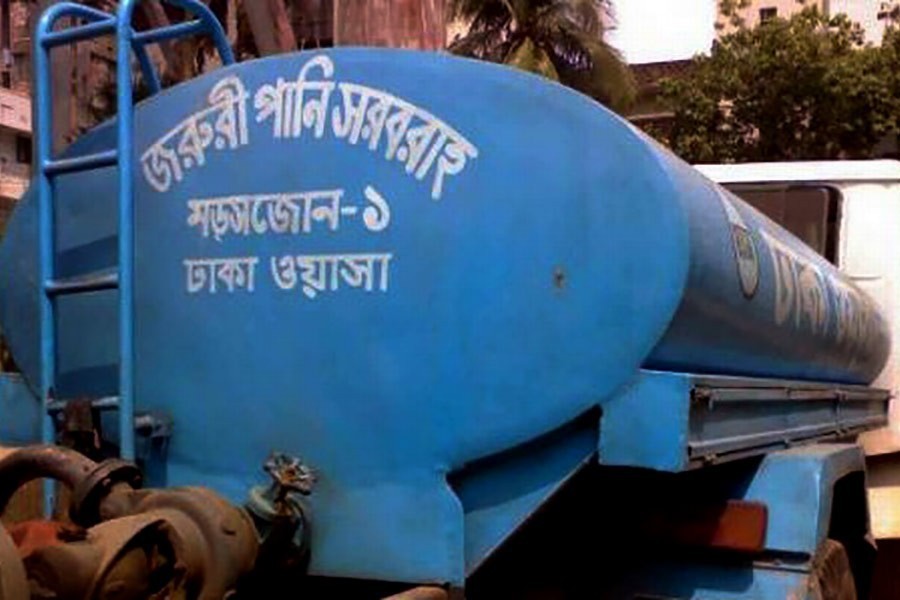It is no secret that residents of the capital city are not satisfied with the performance of the Dhaka Water and Sewerage Authority (DWASA). They do not approve of the way this major utility service provider has been handling its job for the past few decades.
The organization has been at the receiving end lately from the country's higher court and rights bodies in particular and the consumers in general on the issue of purity of water it supplies across the city. The stubbornness that a few top officials have demonstrated in the face of growing public dissatisfaction has only heightened the DWASA's image crisis.
The indifference on the part of DWASA officials has not just remained confined to water supply and sewerage system management. They are equally neglectful of their duties and responsibilities in other areas.
Though the management of the problem of water-logging during monsoon remains its job, the DWASA has never been serious in attending to it. The top brass has always demonstrated a sort of denial mode in the face of public criticism.
A case in point is the implementation of a Tk.6.0 billion project that the government approved in April last year for re-excavating and widening five major canals of Dhaka city. Most parts of these canals have been narrowed down by encroachers. The canals located in Hazaribagh, Mirpur-Pallabi, Kurmitola, Manda and Begunbari are now failing to drain out rain waters, giving rise to serious problem of water-logging in areas adjacent to these canals. Even nearby busy roads get inundated following a brief spell of rain, causing disruption to vehicular movement.
There was a sense of urgency on the part of the government to rid a large part of the city of water-logging problem. Unfortunately, the DWASA which has been given the responsibility of executing the project is showing its indifference.
More than a year has gone by since the approval of the project but the agency is yet to make any headway as far as the execution of the project is concerned. It has recently sent a proposal to the Ministry of Land (MoL) seeking acquisition of land relevant to the implementation of the project. The MoL will examine the proposal and then send it to the office of the deputy commissioner, Dhaka, for necessary action. The process is lengthy and time-consuming one. In the meanwhile, the tenure of the canal project is scheduled to expire in December next.
It is now certain that the DWASA would soon request the Planning Commission to extend the tenure of the project, a very common practice in the case of development project implementation in Bangladesh. So, the re-excavation of the listed canals is unlikely to take place this year. Could one expect a turn-around marking a responsible break with DWASA's blemished track record?


